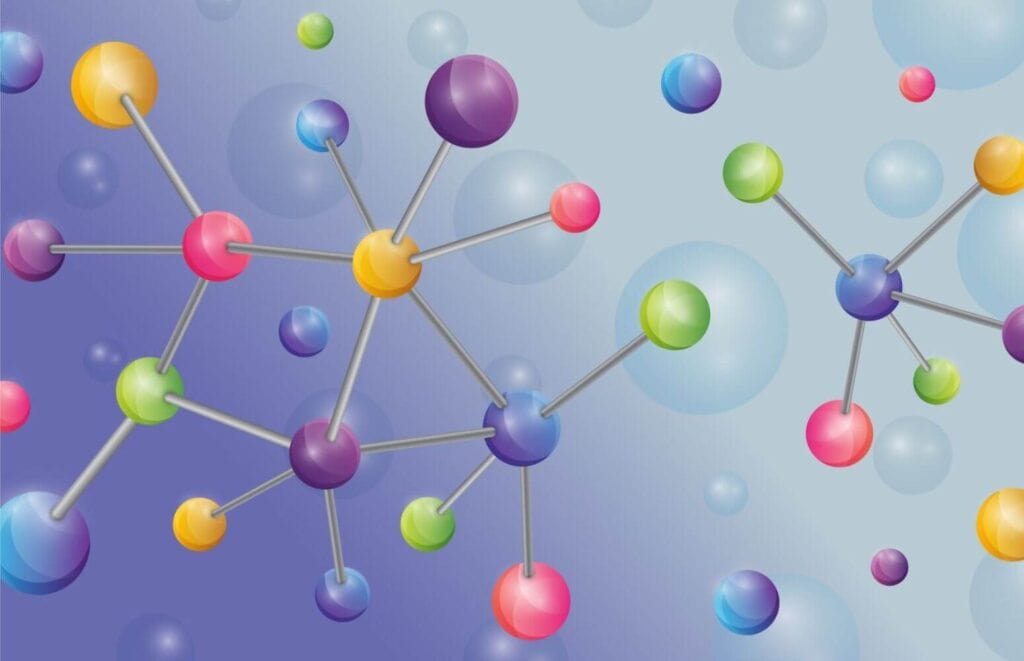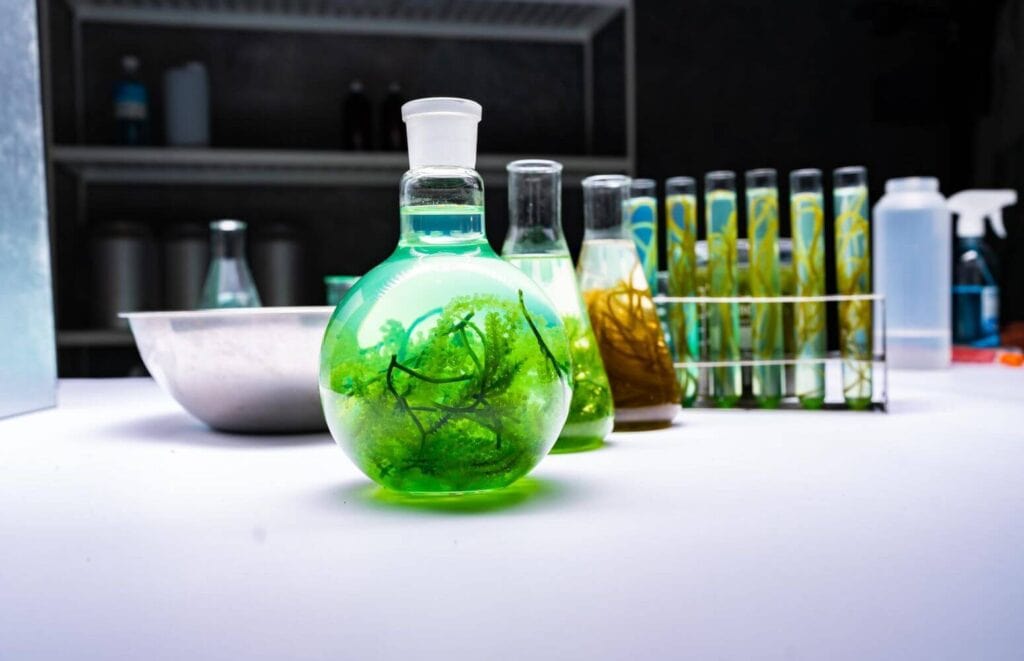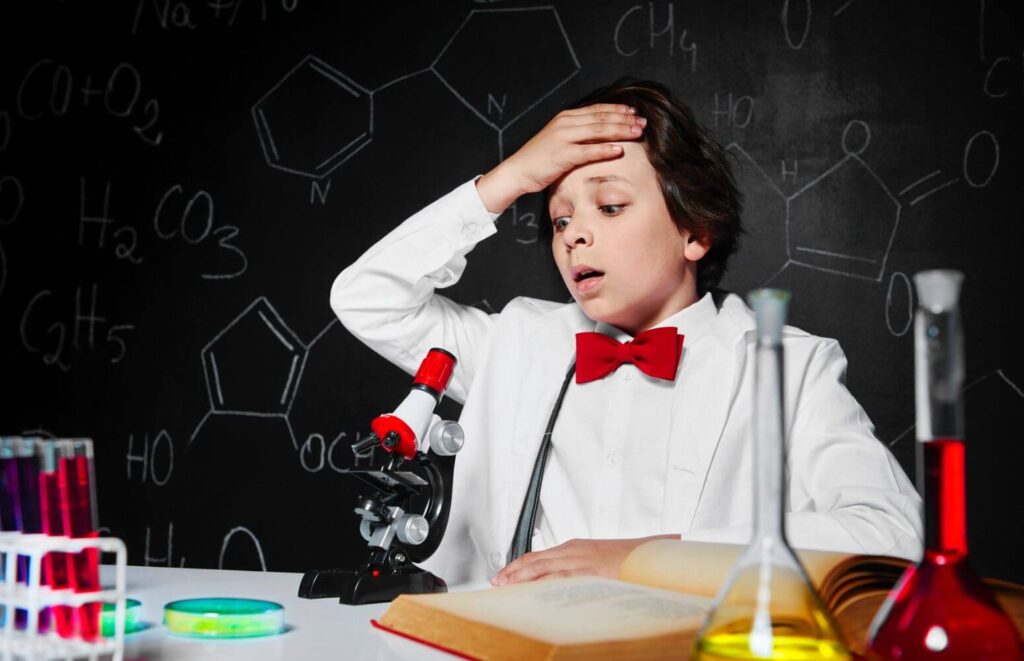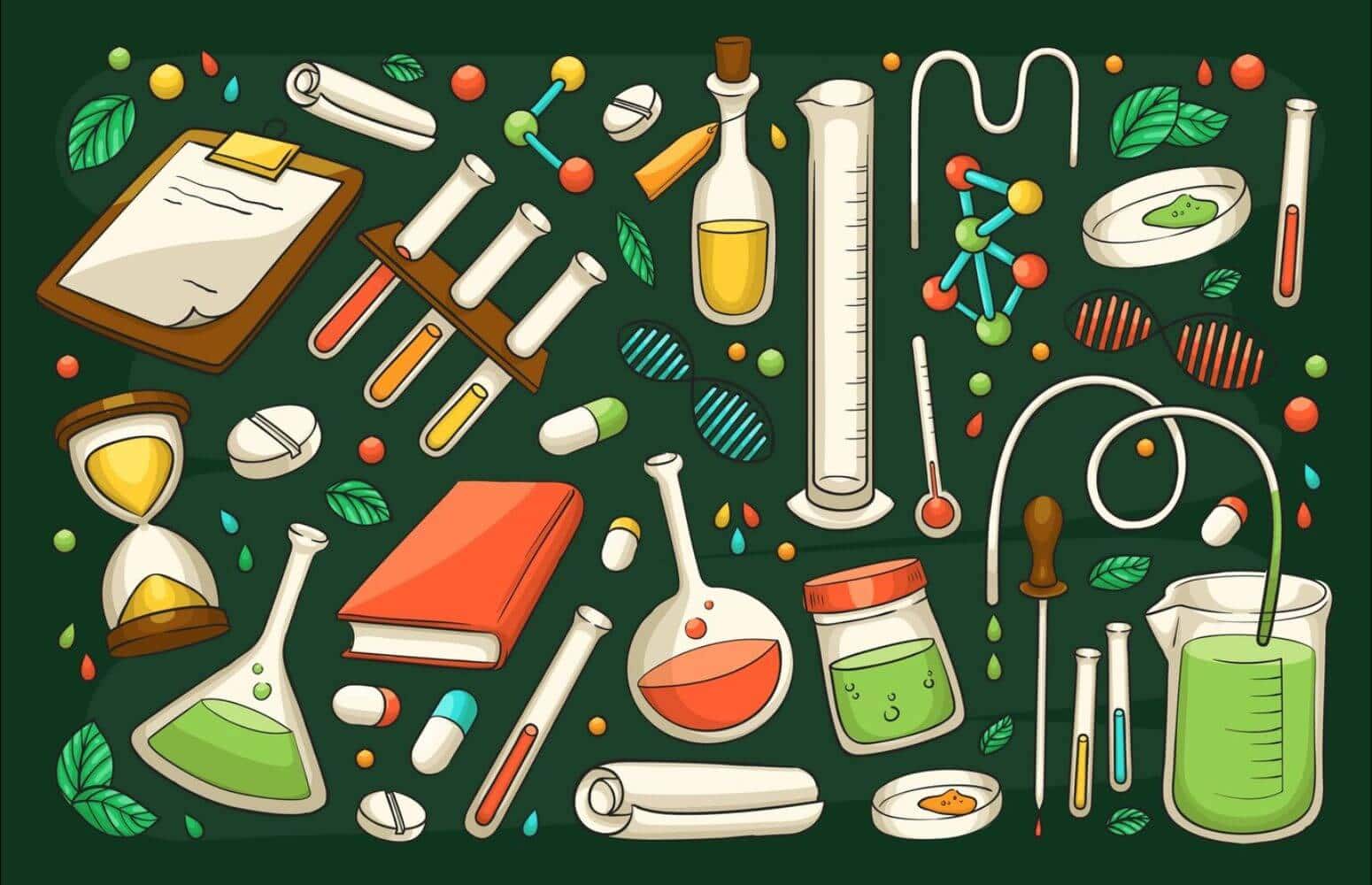Chemistry, often called the “central science,” is at the core of our understanding of the world’s fabric. It is pivotal in our daily lives, from the air we breathe to the technologies we rely on. It is crucial in addressing global challenges such as environmental sustainability and healthcare. The chemistry study offers a rich tapestry of knowledge, bridging the gap between the physical sciences and life sciences and equipping learners with diverse skills.
This discipline is not merely about understanding substances and their reactions; it’s a gateway to critical thinking, problem-solving, and innovation. Chemistry students embark on a diverse learning journey through its theoretical foundations and practical applications. They gain insights into the microscopic world that builds our macroscopic reality and apply this knowledge to create solutions that better our lives.
As we delve into the importance and impact of chemistry, we highlight its significance in solving real-world problems and the broad spectrum of skills it provides. Chemistry’s interdisciplinary nature makes it a versatile and invaluable field of study, preparing learners for a future where they can make a substantial difference. Join us in exploring the transformative power of chemistry and the opportunities it holds.
Foundations of Chemistry: What You Will Learn
The journey through chemistry begins with a solid foundation in its core principles and theories, which serve as the building blocks for all future learning and applications in the field. This section explores these essentials and highlights how studying chemistry sharpens analytical skills, which is critical for academic and real-world problem-solving.
Core Principles and Theories
Atomic Structure: Understand the fundamental building blocks of matter. Learn about the composition of atoms, including protons, neutrons, and electrons, and how their arrangement affects the properties and behaviors of elements.

Chemical Bonds: Explore how atoms combine to form molecules through various types of bonding (ionic, covalent, metallic, etc.). This knowledge is crucial for predicting the structures and properties of substances, from simple compounds to complex biomolecules.
Reaction Mechanisms: Delve into the processes that govern chemical reactions. Understanding mechanisms allows chemists to predict reaction outcomes, design new reactions, and synthesize complex molecules, essential in pharmaceuticals and materials science.
Thermodynamics: Grasp the principles that dictate energy changes in chemical reactions. Thermodynamics helps predict the direction and extent of chemical processes, playing a key role in everything from biochemistry to industrial chemistry.
Analytical Skills Development
Studying chemistry not only imparts theoretical knowledge but also hones a set of analytical skills vital for solving complex problems:
Problem-Solving: Tackling chemical problems requires a methodical approach to hypothesize, experiment, and analyze results. This skill is invaluable across all disciplines and daily life, fostering a logical and systematic approach to challenges.
Data Interpretation: Chemistry students learn to interpret and draw conclusions from experimental data. This involves understanding graphs, tables, and numerical data, skills that are essential for research, quality control, and many technology-driven industries.
Critical Thinking: Through analyzing chemical phenomena and experimental outcomes, students develop the ability to think critically. They learn to question assumptions, evaluate evidence, and consider alternative solutions, crucial for innovation and scientific advancement.
The foundations of chemistry provide more than just a knowledge base; they cultivate a mindset geared toward inquiry, exploration, and discovery. As students advance in their studies, these foundational concepts and skills become tools for unlocking the mysteries of the material world and contributing to advancements across a broad spectrum of scientific fields.
Deep Dive into Chemistry Topics and Courses
Chemistry is like a big, fascinating puzzle that helps us understand everything from why leaves change color in the fall to how medicines are made. If you’re curious about the world around you, diving deeper into chemistry topics and courses will open up a universe of discoveries. Here’s a look at the exciting areas you can explore in chemistry, some cool courses, and how they connect with other subjects.
Exploring Different Areas of Chemistry
General Chemistry: Think of this as your introduction to the chemistry world. You’ll learn about the basics, like what everything is made of (atoms and molecules), how substances change and react, and the role energy plays in those processes. It’s your first step into understanding the science behind everything.
Organic Chemistry: This area is all about the chemistry of carbon and its compounds. Carbon is a building block of life, so organic chemistry is important for everything from creating new materials like plastics to understanding how our bodies work.
Inorganic Chemistry: While organic chemistry focuses on carbon-based compounds, inorganic chemistry explores the rest of the periodic table. You’ll learn about metals, minerals, and other materials essential for technology, health, and the environment.
Physical Chemistry: This is where chemistry meets physics. Physical chemistry helps you understand how molecules behave and how chemical reactions happen on a tiny scale. It’s like the science behind it, explaining why certain reactions happen and how to use them to create new technologies.
Special Courses and Certifications
As you get more into chemistry, you can take special courses that go deeper into interesting topics:
Cool Chemistry Experiments: Some courses let you do advanced experiments, showing you how to create reactions that seem like magic (but are science!).
Chemistry in Our World: Some courses show how chemistry is part of our daily lives, from the environment to new energy sources and even in art and cooking.
Getting Certified: If you love chemistry and think you want to make a career out of it, there are certifications you can get in high school that show colleges you’ve got a solid chemistry background.
Chemistry and Other Subjects
One of the coolest things about chemistry is how it links to so many other subjects:
Biochemistry: This is where chemistry and biology meet. You’ll learn how chemical processes keep us alive, from how we turn food into energy to how our DNA works.
Environmental Chemistry: Want to help save the planet? This area looks at how chemicals affect the environment and how we can solve problems like pollution and climate change.

Science Magic: Okay, it’s not magic, but some courses show how chemistry principles are behind some awesome tricks and experiments, making learning super fun.
Chemistry isn’t just memorizing the periodic table; it’s a key that unlocks the mysteries of the universe. Whether you’re into making new materials, understanding how your body works, or protecting the environment, there’s a place for you in the world of chemistry. So get ready to put on your lab coat, ask big questions, and explore!
Different Branches of Chemistry
Chemistry is like a tree with many branches, each exploring different aspects of the world around us. Let’s look at some of these branches and discover why they’re so important and what cool things they help us do.
Organic Chemistry
What It Is: Organic chemistry is all about studying compounds that contain carbon. Since all life on Earth is carbon-based, this branch is important for understanding living things and creating new materials.
Why It’s Cool: It helps us make medicines, design better foods, create new materials like plastics and fabrics, and even work on cool tech like flexible electronics.
Inorganic Chemistry
What It Is: This branch focuses on substances that aren’t carbon-based. Inorganic chemistry looks at metals, minerals, and gases, among other things.
Why It’s Cool: It’s key for creating materials like metals and ceramics, making electronic devices, and developing catalysts that speed up chemical reactions (which are super important in making many products).
Analytical Chemistry
What It Is: Analytical chemistry determines what substances are made of and how much each is in a mixture.
Why It’s Cool: It’s used in everything from checking food and water quality to solving crimes (like in forensics) and developing new medical tests.
Biochemistry
What It Is: Biochemistry studies chemical processes in living organisms. It’s a bit like a mix of biology and chemistry.
Why It’s Cool: It helps us understand how diseases happen and how to treat them, how our bodies use food for energy, and how plants and animals live and grow. It’s also crucial for biotechnology, including genetic engineering and creating new types of crops.
Physical Chemistry
What It Is: Physical chemistry combines chemistry with physics to study how molecules move, how chemical reactions happen, and how energy changes during these reactions.
Why It’s Cool: It helps us design better batteries, solar panels, and other energy technologies. It also helps us understand the universe molecularly, from the smallest atoms to the biggest stars.
Each branch of chemistry opens up new ways of understanding and improving the world, from creating life-saving drugs and sustainable energy sources to solving the mysteries of the universe. Whether you’re fascinated by the tiny particles that make up everything or excited about inventing the next big thing in technology or medicine, there’s a place for you in the amazing world of chemistry.
Beyond the Lab: Transferable Skills and Interdisciplinary Insights
Chemistry isn’t just about mixing colorful liquids in a lab; it’s a field that teaches you many super useful skills you can use in all areas of life. Let’s dive into some of these skills and see how chemistry connects with other subjects and the real world.
Critical Thinking and Problem Solving

How Chemistry Helps: You’re not just following a recipe when doing chemistry experiments. You’re learning to consider why you’re doing each step and what the results mean. This helps develop your critical thinking—asking the right questions and figuring out how to get the answers.
Real-Life Example: Imagine you’re trying to figure out the best way to clean up an oil spill. Chemistry teaches you to analyze the situation, consider different methods (like using bacteria that eat oil or inventing a new material that absorbs oil), and find the most effective solution.
Collaborative Skills and Ethics
Teamwork in Action: Chemistry is a team sport. Whether in a research lab or working on a group project in class, you learn to work with others, share ideas, and develop solutions together. This teaches you how to be a good team player in any situation.
Ethical Considerations: Chemistry also teaches you to think about the impact of your work. For example, creating a new chemical might solve one problem but could harm the environment. Chemists need to consider these ethical issues and work to find solutions that are good for everyone.
Real-World Applications
Chemistry graduates do all kinds of cool stuff beyond the lab. Here are a few examples:
Industries: From creating new materials for space exploration to designing eco-friendly packaging, chemists are behind many innovations in technology and manufacturing.
Research: Chemists are on the front lines of discovering new medicines, developing renewable energy sources, and understanding how the universe works.
Education: Teaching the next generation about the wonders of chemistry, whether as school teachers, university professors, or science communicators.
Policy-Making: Chemists also play a crucial role in shaping policies related to public health, the environment, and technology. They help ensure the decisions we make as a society are based on solid science.
Studying chemistry gives you a valuable toolkit of valuable skills no matter where your career takes you. You learn to think critically, solve problems, work well with others, and consider the bigger picture. Plus, you get the chance to make a real difference in the world, whether inventing something new or helping solve some of our planet’s biggest challenges.
Embarking on a Chemistry Adventure: How to Get Started
Ready to dive into the world of chemistry? Whether you dream of making discoveries in a lab or using chemistry to solve global challenges, here’s your guide to starting your chemistry adventure!
Educational Pathways
High School: Start with chemistry classes in high school to get the basics down. Participate in science fairs and clubs to get hands-on experience.
Undergraduate Degree: Look for colleges with strong chemistry programs. A Bachelor’s degree in chemistry will give you a solid foundation. You can focus on general chemistry or specialize in organic, inorganic, or biochemistry.
Postgraduate Options: If you want to dive deeper or pursue a research career, consider pursuing a Master’s or Ph.D. This is where you can specialize and work on cutting-edge research projects.
Resources for Aspiring Chemists
Clubs and Societies: Joining a chemistry club or society, like the American Chemical Society (ACS), is a great way for students to meet like-minded people, learn more about the field, and participate in chemistry-related activities.
Online Platforms: Websites like Khan Academy, Coursera, and YouTube have many resources and videos that make learning chemistry fun and accessible. Plus, you can join online forums and social media groups to ask questions and share your chemistry experiences.
Internships and Research Opportunities: Look for internships or summer research programs at universities or industries. These experiences are invaluable for applying what you’ve learned and tasting real-world chemistry.
Success Stories and Inspirations
Marie Curie: The first woman to win a Nobel Prize and the only person to win in two different scientific fields (physics and chemistry) for her work on radioactivity.
Ahmed Zewail: Known as the “father of femtochemistry,” he won the Nobel Prize for his work on studying chemical reactions in extremely short timescales, opening new paths for research in chemistry and biology.
Percy Julian: Despite facing racial barriers, he became one of the first African Americans to receive a Ph.D. in chemistry and made groundbreaking discoveries in synthesizing medical drugs from plants.
These stories show that chemists can make a huge impact with passion, hard work, and curiosity. Whether you’re inspired by the achievements of famous chemists or excited by the possibilities of discoveries, there’s a place for you in the chemistry community.
Starting your chemistry journey is about exploring, asking questions, and being ready to discover the unknown. With the right education, resources, and inspiration, you’re well on your way to becoming part of the next generation of chemists who will change the world. So, put on your lab coat, and let’s get started on this exciting adventure!
Conclusion: The Elemental Choice of Studying Chemistry
Chemistry is more than a subject; it’s a transformative journey that opens doors to understanding and improving the world around us. Through the study of chemistry, we unlock the potential for sustainable innovations and groundbreaking solutions to global challenges. This field empowers us with critical thinking, problem-solving skills, and the ability to bring about positive change.
We invite you to embark on this impactful and dynamic path. Chemistry offers endless possibilities to contribute to a better future, whether through environmental sustainability, medical advancements, or technological innovations. Goucher College provides a nurturing ground for aspiring chemists focusing on excellence, sustainability, and innovation. Here, you can start your journey equipped with the knowledge and support to make a difference.
Studying chemistry is choosing a future where you can significantly contribute to society and the planet. Consider taking this step with Goucher College and discover how far the exciting world of chemistry can take you. Let’s shape the future together, one molecule at a time.

